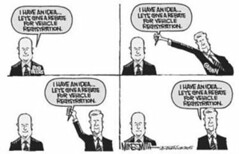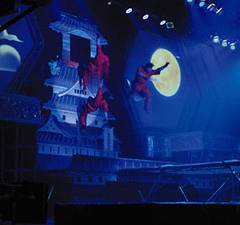Seth Godin is one of the few bloggers out there that nails communication observations more often than not. Enough so that I'm adding him to our company's blog shuffle for a bit. If you're not familiar with this best selling author, who is uniquely successful with ebooks, or his blog, I certainly encourage you to take a look.
In addition to recently posting which web 2.0 companies are gaining traction, he did a great job at highlighting ESPN's John Sawatsky's take on how not to ask questions. The irony is that many members of the media, and even more politicians, practice all of them without fail. I've included four of the seven below, leaving the rest to be found on Seth's blog.
* Double-barreled questions. Like: "Is this your first business? How did you get started?" You're unlikely to get answers to both. One question at a time.
* Overloading. Ask: short, simple questions. "What is it like to be accused of murder?"
* Adding your own remarks. Again, this is not the time or place to say that you hate Chryslers... You're not being interviewed.
* Trigger words. One famous example of this was when TV reporter John Stossell asked a pro wrestler about the "sport'' by volunteering this about the fighting: "I think it's fake." The pro wrestler hit him--twice. "Was that fake?" he demanded...
Trigger words, by the way, are also sometimes referred to as ''needling,'' which is one of eight zinger questions I teach public relations professionals and spokespeople to be aware of and avoid during an interview.
Closer to home, it's also Jon Ralston's favorite setup, probably because he knows it makes for great entertainment, if not a great answer, as Sawatsky points out.
In addition to recently posting which web 2.0 companies are gaining traction, he did a great job at highlighting ESPN's John Sawatsky's take on how not to ask questions. The irony is that many members of the media, and even more politicians, practice all of them without fail. I've included four of the seven below, leaving the rest to be found on Seth's blog.
* Double-barreled questions. Like: "Is this your first business? How did you get started?" You're unlikely to get answers to both. One question at a time.
* Overloading. Ask: short, simple questions. "What is it like to be accused of murder?"
* Adding your own remarks. Again, this is not the time or place to say that you hate Chryslers... You're not being interviewed.
* Trigger words. One famous example of this was when TV reporter John Stossell asked a pro wrestler about the "sport'' by volunteering this about the fighting: "I think it's fake." The pro wrestler hit him--twice. "Was that fake?" he demanded...
Trigger words, by the way, are also sometimes referred to as ''needling,'' which is one of eight zinger questions I teach public relations professionals and spokespeople to be aware of and avoid during an interview.
Closer to home, it's also Jon Ralston's favorite setup, probably because he knows it makes for great entertainment, if not a great answer, as Sawatsky points out.


















